KONOPÁSEK, Z. (v přípravě): Complicating Domestication. In: K. Pauknerová, M. Hudík a J. Turek: Domestication: Nature and Society in the Anthropocene. Praha: Karolinum
::::The notion of domestication seems to be a useful concept across natural and social sciences, far beyond its original context of use. It addresses a variety of conditions. It becomes useful when we want to talk about control, subjugation, wildness or tameness, civilization, upbringing, cultivation, enculturation, exploitation, coexistence, or integration of something into everyday life; or about the omnipresent, slow, and subtle transformations related to sharing the world with some others. To make the concept of domestication integrated into the contemporary discourses of the Anthropocene, we should find ways not to think of domestication in terms of a simple, one-way development. Such an approach could shed new light not only on the phenomenon of domestication in its narrower sense, associated with the biological sciences, but would also help to think more sensitively and subtly about the power relations involved in various forms of coexistence in general.
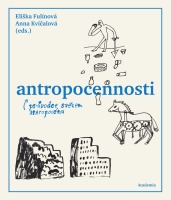
KONOPÁSEK, Z. & ŘÍHA, C. (2024): Letáčky. In: E. Fulínová & A. Kvíčalová, ed: Antropocennosti: Malý průvodce světem antropocénu. Praha: Academia. Str. 73-83
::::Letáčky CHKO nejsou žádná antropocénní ikona, přesto o tomto fenoménu vypovídají. Ukazují, že nežijeme jen v době bezprecedentního ničení přírody, krajiny či kulturních památek, ale také dosud nebývalých ochranných opatření. Nejde přitom jen o akci a reakci. Nerozšiřuje se totiž jen počet chráněných exemplářů, lokalit, ale i typů toho, co předmětem ochrany je. Přitom se zvyšuje naléhavost otázky, co vlastně chráníme a před kým. Antropocén je nejen fyzický stav současného světa, ale i způsob, jak o něm mluvíme. K jeho charakteristice patří jak obecně to, že o něm čím dál více uvažujeme v režimu ochrany, regulace, tak i to, na co konkrétně je tato ochrana zaměřena.

POKORNÝ, P. & KONOPÁSEK, Z. (2020): We are all in the thick of it: A dialogue about climate change science, politics and activism. In: A. Vondra, ed: Must environmentalism be alarmist? Searching for realistic answers. Brno: Books & Pipes. Pp. 27-69
::::Two colleagues, paleoecologist and sociologist, talk about broader contexts of scientific doubting about contemporary climate policies.
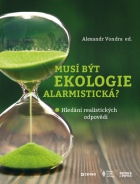
POKORNÝ, P. & KONOPÁSEK, Z. (2020): Lítáme v tom: Dialog o klimatu na pomezí vědy, politiky a aktivismu. In: A. Vondra, ed: Musí být ekologie alarmistická? Hledání realistických odpovědí. Brno: Books & Pipes. Str. 67-105
::::Paleoekolog Pokorný a sociolog Konopásek, jinak blízcí akademičtí kolegové, rozmlouvají o některých obecnějších souvislostech vědeckého pochybování nad současnou klimatickou politikou. Začínají u rozpaků přírodovědce nad tím, co si počít s ostře odmítavými až útočnými reakcemi širší veřejnosti vůči prezentaci odborného mínění, které jednoduše nezapadá do současného populárního kánonu. Tyto reakce nemají typicky charakter věcné disputace, ale dotýkají se přímo a výslovně osobní integrity, morálky a politického přesvědčení. Patří tohle do vědy? A pokud ano, tak jak? Co si má badatel s tímto rozměrem veřejné debaty počít? Paleoekolog se s takovými otázkami obrací na sociologa vědy, u kterého tuší nalézt porozumění. Sociolog se snaží naznačit komplikované rozhraní mezi vědeckým a politickým, jakož i choulostivost vztahů mezi odborným odstupem od věci a angažovaným ponorem do ní. Čerpá přitom nejen ze specifických zkušeností sociologa vědy, ale často dává na první pohled odtažité příklady z šířeji pojaté oblasti sociálních věd.
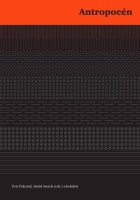
KONOPÁSEK, Z. (2020): Antropocén: Více než jeden, méně než dva. In: P. Pokorný & D. Storch, eds: Antropocén. Praha: Academia. Str. 32-50
::::Antropocén je pojmenování pro současnou situaci a zároveň specifické vidění světa, které k tomuto pojmenování vede. Pojem samotný se zrodil jako označení současné epochy geologického vývoje Země. Byl podpořený narůstajícím množstvím vědeckých údajů o komplexních a dlouho jen tušených dějích v tzv. planetárním systému, o kritické míře vlivu lidské činnosti na tento systém a o souvisejících globálních proměnách. Debaty o antropocénu dalece překročily snahy o formální geologické definování jeho počátku nebo popisy dílčích vědeckých nálezů. Obsah pojmu se rozšířil a rozmlžil. Antropocénem už není jenom nějaká „epocha“, od – do, „tam venku“, kterou lze při dostatečném vědeckém odstupu od světa za pomoci obrovských datových souborů občas zahlédnout. Antropocén zároveň označuje situaci, ve které stále zřetelněji vnímáme procesy, které nevratným a často hrozivým způsobem proměňují okolní svět a kterým nelze dost dobře rozumět na pozadí buď-anebo kategorií moderního rozumu, v prvé řadě na pozadí samozřejmého rozlišování mezi tzv. Přírodou a tzv. Společností či Kulturou. Důležitým se stává studium vztahů, a to napříč doménami, které jsme dosud považovali za nesouměřitelné či vzájemně se vylučující. Mění se nejen vztah přírodních a sociálních věd, ale také postavení vědy obecně: odvolávat se na „holá fakta“ a apolitičnost vědy přestává stačit; vědci se dostávají pod hodnotové a politické tlaky, na které nebyli zvyklí. Debaty o antropocénu byly v mnoha směrech připraveny debatami jinými, dřívějšími – povýtce zhusta na půdě sociálních či humanitních věd. Antropocenní rámec však přináší možnost, aby tyto debaty byly s přičiněním přírodních vědců doceněny, dále rozvinuty a lépe uzemněny.
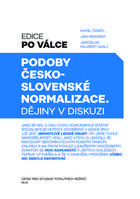
BARTLOVÁ, M. / BÍLEK, P. / KONOPÁSEK, Z. / REIFOVÁ, I. (2017): Diskuze o interdiciplinárních přístupech k normalizaci. In: K. Činátl, J. Mervart & J. Najbert, eds: Podoby česko-slovenské normalizace: Dějiny v diskusi. Praha: ÚSTR/NLN. Str. 81-101
::::
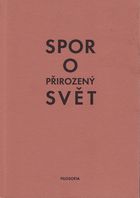
KONOPÁSEK, Z. (2010): Věda, každodenní skutečnost a "přirozený svět". In: B. Velický, K. Trlifajová & P. Kouba, eds.: Spor o přirozený svět. Praha: Filosofia. Str. 173-196
::::V tomto příspěvku se zamýšlím nad pojmem přirozeného světa ze dvou zvláštních sociologických hledisek: z hlediska současných studií vědy a technologií (science and technology studies, STS) a z perspektivy klasického sociálního konstruktivismu. Vysvětluji, zaprvé, proč STS na husserlovskou kritiku vědy (z pozic přirozeného světa) prakticky nenavazují, ač oba proudy bádání nějak problematizují založení vědeckého poznání. Za druhé jsem se snažil vysvětlit, proč a v jakém smyslu klasický sociální konstruktivismus, fenomenologicky založený a z úvah o žitém světě vycházející, znamená vlastně překročení koncepce přirozeného světa (a v důsledku i její opuštění). V obou případech přirozený svět vypadá jako nepříliš realistická a ne zrovna přesvědčivá abstrakce, která nevysvětluje – a asi ani nemůže vysvětlit či ozřejmit – podstatné otázky těchto oborů: tedy jaká je specifická povaha vědy (např. oproti jiným podobám vědění) a co zakládá každodenní svět, který se dá prakticky žít – psychicky, fyzicky i sociálně. Pojem přirozeného světa je dokonce poněkud nešťastný tím, jak navzdory proklamacím a veškeré snaze prohlubuje a stvrzuje propast mezi subjektem a objektem, mezi subjektivním a objektivním. V sociálním konstruktivismu to vyvolává řadu fatálních nedorozumění; a skrznaskrz konstruktivistická STS se těmto zmatkům a rozporům vyhnula tak, že se – podobně jako řada dalších konstruktivisticky založených bádání – od klasické, fenomenologicky založené podoby konstruktivismu zcela distancovala.
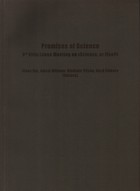
KONOPÁSEK, Z. (2007): The language metaphor in sociology - two different trajectories. In: A. Wittwer, E. Kut, V. Pliska & G. Folkers, eds.: Approaching scientific knowledge: Metaphors and models. Zurich: Collegium Helveticum. Str. 35-42
::::Metafora jazyka patří mezi vlivné metafory v sociologii. Podle Browna jde vlastně o klíčovou metaforu (root metaphor), protože ji používáme jako zcela běžné, často ani nevyslovené obecné zarámování toho, jak si představujeme sociální struktury a procesy, jak je pozorujeme a studujeme. Pro řadu sociologů nejsou sociální jevy jako jazyk, ale vlastně jsou jazykem. Chápat skutečnost jako jazyk či jazykové projevy však může znamenat velmi různé věci; a různé pojetí jazykové metafory se také promítá velmi různým, často rozporným způsobem do sociologické teorie a metodologie. Pro někoho vede metafora jazyka nevyhnutně k významné a politováníhodné redukci: jako sociologicky podstatná se pak přijímá pouze malá část skutečnosti, vlastně jen texty a jazykové promluvy, zatímco zbytek je ponechán stranou. Jiní sociologové berou za svou metaforu jazyka poněkud jinak, vlastně protikladně. Uplatňují to, co o povaze a fungování jazyka víme, na v zásadě kterýkoli prvek tzv. mimo-jazykové skutečnosti. Realita tak není redukována na texty, ale učíme se (nejrůznější) realitě rozumět jako něčemu jazykovému, textuálnímu. V tomto textu tyto dva protichůdné přístupy načrtávám a vysvětluji, abych předvedl jak různý význam může ve vědeckém používání (dokonce v rámci jediné disciplíny) zdánlivě tatáž metafora.
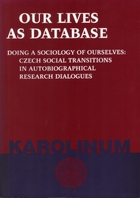
KONOPÁSEK, Z. (2000): Reflexive autobiographies: Interpreting the East - understanding the West. In: Z. Konopásek, ed.: Our lives as database: Doing a sociology of ourselves - Czech social transitions in autobiographical research dialogues. Praha: Karolinum. Str. 281-298
::::

KONOPÁSEK, Z. (2000): Grandma sociology (reconsidered). In: Z. Konopásek, ed.: Our lives as database: Doing a sociology of ourselves - Czech social transitions in autobiographical research dialogues. Praha: Karolinum. Str. 137-172
::::
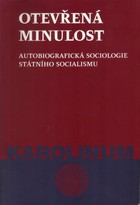
KONOPÁSEK, Z. (1999): Sociologie babičkou (po dvou letech). In: Z. Konopásek, ed.: Otevřená minulost: autobiografická sociologie státního socialismu. Praha: Karolinum. Str. 217-251
::::
KONOPÁSEK, Z. (1991): Rodina a výzkum sociální struktury. In: J. Alan & P. Machonin a kol.: Jak se rodí sociologický výzkum: K problémům výzkumu transformace sociální struktury československé společnosti. Praha: Universita Karlova. str. 166-171
:::: 
 ? - recenze vyjde v časopise Biograf
? - recenze vyjde v časopise Biograf
 se objevily informace o tom, co lze snad prý během března čekat v nové, sedmé verzi mého oblíbeného analytického programu
se objevily informace o tom, co lze snad prý během března čekat v nové, sedmé verzi mého oblíbeného analytického programu








